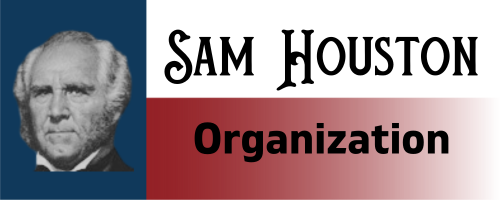Houston and the Complex Dynamics of Slavery
The story of Sam Houston, the man who played a key role in the establishment of Texas, offers a unique perspective on the issue of slavery in 19th-century America. Houston was a complex figure who, despite his southern heritage and political affiliations, held surprisingly nuanced views on slavery that deviated from the mainstream Southern perspective.
Born in Virginia in 1793, Houston grew up in a world where slavery was commonplace. Yet, his experience living with the Cherokee Nation during his youth likely had a profound impact on his understanding of human rights and freedom. Houston’s familiarity with the complexities of cultural and racial differences, slavery, and freedom would influence his later political decisions.
In the 1830s, when Houston played a leading role in the Texas Revolution and later became the Republic of Texas’s first President, slavery was an integral part of the economy and social structure in the South. The Republic of Texas, with its southern geography and culture, was no exception.
Houston, however, was not an unreserved supporter of slavery. His political actions suggested a certain ambivalence toward the institution. For instance, during his tenure as the President of the Republic of Texas, he attempted to prohibit the international slave trade, an action that received substantial pushback from other leaders who were more deeply entrenched in the pro-slavery mentality.
When Texas joined the United States, Houston continued to serve in various political roles, including U.S. Senator and later Governor of Texas. Throughout these years, he walked a political tightrope over the issue of slavery. While he was a slaveholder himself, which obviously complicates his legacy, his political stance often leaned more moderate than many of his Southern counterparts.
Houston’s political career culminated in a controversial stand against secession from the Union in the prelude to the Civil War. He was a firm believer in preserving the Union and worked tirelessly against the rising tide of secessionist sentiment in Texas. Despite the heavy pro-slavery sentiments in the state, Houston refused to align with the Confederacy, a decision that eventually cost him his governorship.
While his opposition to secession was rooted primarily in his Unionist convictions, it indirectly put him at odds with the pro-slavery cause that drove many southern states to secede. This is perhaps the clearest example of Houston’s nuanced perspective on slavery, although it should not be misinterpreted as a progressive stance on racial equality by today’s standards.
Sam Houston remains a significant, yet complex figure in American history. His views on slavery are entangled in a web of personal, political, and economic considerations. While Houston never publicly denounced slavery or sought its abolition, his policies and actions displayed a more complex perspective than many of his contemporaries. His story serves as a reminder that views on controversial issues like slavery were not monolithic, even within the pro-slavery South, and that historical figures often defy simple categorizations.
The Houston family owned several slaves throughout their time in Texas. These individuals, bought and inherited by the Houstons, performed various roles within the household, including agricultural labor on the family’s farm at Raven Hill, near Huntsville.

One of the most well-known enslaved individuals within the Houston household was Joshua Houston. Joshua was bought by Sam Houston in Alabama, and he chose to stay with the family when offered his freedom in the late 1840s. Joshua served in various capacities, including as Sam Houston’s personal attendant. After emancipation, he became a successful businessman and community leader in Huntsville, which suggests he had been allowed some form of education while enslaved.

Another enslaved individual associated with the Houston family was Eliza, who served as the personal maid of Margaret Houston, Sam Houston’s wife. Eliza was reportedly close to Margaret and is known to have been a skilled seamstress. She sewed many of the Houston family’s clothes, including Sam Houston’s famous “Mexican” vest. Like Joshua, Eliza chose to stay with the family after she was offered her freedom.
It is important to understand these relationships in their historical context. While some narratives might emphasize the apparently close relationships between the Houston family and their slaves, the basic reality of these relationships was ownership and control by the Houstons. Slavery was an inherently coercive institution, and any semblance of mutual respect or affection must be viewed within this framework.
Moreover, Sam Houston’s reluctance to emancipate his slaves in his lifetime, despite his complex political views on slavery, suggests a certain level of acceptance of the institution in his personal life. The dichotomy between his public political life and his private life reflects the broader complexities and contradictions within Southern society during this tumultuous period in American history.
